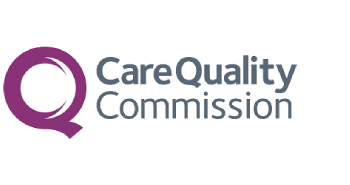To give you a straightforward answer, yes! An autism diagnosis can significantly help your child. Understanding your child’s unique needs and challenges through a formal diagnosis can pave the way for targeted support and interventions. This article will explore the benefits of an autism diagnosis, the process involved, and answer key questions to help parents navigate this crucial step.
We will begin by discussing the immediate and long-term benefits of obtaining an autism diagnosis. Then, we’ll go into what an autism assessment involves, why a private autism diagnosis might be beneficial, and the role of professional services like KPI:Access.
The Benefits of an Autism Diagnosis
Immediate Benefits
An autism diagnosis provides clarity and understanding for both the child and the parents. It can help to explain any behaviours that might have previously seemed confusing or challenging. With an official autism diagnosis, parents can begin to understand their child’s unique way of interacting with the world.
Access to Support and Services
Once a diagnosis is made, your child can access a range of services that are there to support them and are tailored to their needs. These services may include educational support, speech and language therapy, occupational therapy, and behavioural interventions. Schools and other educational institutions are also more likely to provide accommodations and specialised support once a formal diagnosis is in place.
Creating an Individualised Education Plan (IEP)
An autism diagnosis allows for the creation of an Individualised Education Plan (IEP). This is a customised plan that outlines specific goals and strategies to support your child’s learning and development. An IEP can include modifications to the curriculum, special teaching strategies, and the use of assistive technology.
Better Understanding and Acceptance
A formal diagnosis can foster a better understanding and acceptance of your child’s behaviour among family members, teachers, and peers. It can reduce misunderstandings and promote a more inclusive and supportive environment for your child.
Long-term Benefits
Tailored Interventions
Early diagnosis allows for early intervention, which is crucial in helping children with autism develop essential skills. Tailored interventions can significantly improve communication, social interactions, and adaptive behaviours.
Improved Quality of Life
With appropriate support and interventions, children with autism can lead fulfilling and productive lives. They can develop skills that enable them to participate more fully in school, community, and eventually, the workplace.
Access to Resources and Support Networks
Parents can access resources and support networks that provide valuable information and emotional support. Connecting with other families who are navigating similar experiences can be incredibly beneficial.
What Does an Autism Assessment Involve?
An autism assessment typically includes several steps to ensure a comprehensive understanding of the child’s behaviour and development.
Initial Consultation
The process often begins with an initial consultation, where parents discuss their concerns with a specialist. This helps to determine whether a full assessment is warranted.
Developmental History
A detailed developmental history is taken, including information about the child’s early development, medical history, and family background. This helps to identify patterns and behaviours indicative of autism.
Observation and Testing
The specialist will observe the child in different settings and conduct various tests to assess social interaction, communication skills, and behaviour. Standardised tools like the Autism Diagnostic Observation Schedule (ADOS) and the Autism Diagnostic Interview-Revised (ADI-R) are often used.
Feedback and Diagnosis
After the assessment, the specialist will provide feedback and discuss the results with the parents. If a diagnosis of autism is made, the specialist will outline the next steps and recommend appropriate interventions and support services.
What Happens After My Child Gets an Autism Diagnosis?
Immediate Steps
After receiving an autism diagnosis, it’s important to take immediate steps to ensure your child receives the support they need. Your specialist will provide a detailed report outlining the diagnosis and recommended interventions.
Informing the School
One of the first steps is to inform your child’s school about the diagnosis. This allows the school to put appropriate support and accommodations in place, such as an Individualised Education Plan (IEP). Schools can offer resources and adjustments to help your child thrive academically and socially.
Accessing Therapies and Interventions
Based on the diagnosis, your child may benefit from various therapies and interventions, such as:
- Speech and Language Therapy: To improve communication skills.
- Occupational Therapy: To enhance fine motor skills and daily living activities.
- Behavioural Therapy: To address challenging behaviours and develop coping strategies.
Building a Support Network
Connecting with other parents and support groups can provide invaluable emotional support and practical advice. Many communities have autism support groups that offer resources, activities, and a network of families who understand your experiences.
Regular Monitoring and Adjustments
Autism is a lifelong condition, and your child’s needs may change over time. Regular follow-ups with healthcare providers and educators are essential to monitor progress and make necessary adjustments to interventions and support plans.
Why Choose a Private Autism Diagnosis?
Timely Assessment
One of the significant advantages of a private autism diagnosis is the reduced waiting time. In many cases, obtaining a diagnosis through public health services can involve long waiting lists, which can delay access to essential support.
Personalised Approach
Private assessments often offer a more personalised approach. Specialists can spend more time with each child, providing a thorough and detailed assessment. This ensures that all aspects of the child’s development and behaviour are carefully considered.
Specialist Expertise
Private providers, like KPI:Access, have highly trained and experienced professionals who specialise in autism and other neurodevelopmental disorders. This expertise can ensure a more accurate diagnosis and tailored recommendations for intervention.
KPI:Access
KPI:Access provides accessible and affordable ADHD and autism assessments. Our services focus on assessing young children and adults for ADHD and autism spectrum disorders (ASD).
What Happens in an ADHD/ASD Assessment?
Our neurodevelopmental specialists will work closely with you and your child to fully understand their behaviours and identify potential challenges. This comprehensive assessment ensures the best possible support is provided.
Get Seen Fast
At KPI:Access, we prioritise prompt service. You can book an appointment and have your child seen by our clinical team within a few days.
Self-Referral
No need for a GP referral to book an assessment with us. This makes the process simpler and faster for families seeking help.
No Exclusions
We have a no-exclusion policy, ensuring that any child booked for an assessment will receive the necessary attention and support.
“An ADHD/ASD diagnosis can open a world of opportunities, providing children with essential tools to handle challenging behaviours and excel in difficult situations, thereby helping them reach their full potential,”
A diagnosis is vital in providing your child with the support they need to navigate obstacles and lead a more comfortable life.
Our Story
KPI:Access is a division of KPI: Health, an NHS partner and insourcing company committed to providing excellent healthcare across the UK. The senior team at KPI: Health identified a gap in support within Children’s Services and the high cost of private providers.
Our team of specialists has extensive experience in the assessment and treatment of a wide range of neurodevelopmental disorders in children and adolescents.
KPI:Access – Get In Touch
If you are concerned about your child’s development and think they might benefit from an autism assessment, don’t wait.
Contact KPI:Access today to schedule an appointment and take the first step towards understanding and supporting your child’s unique needs. Our team of experienced professionals is here to help you and your child throughout this journey.





